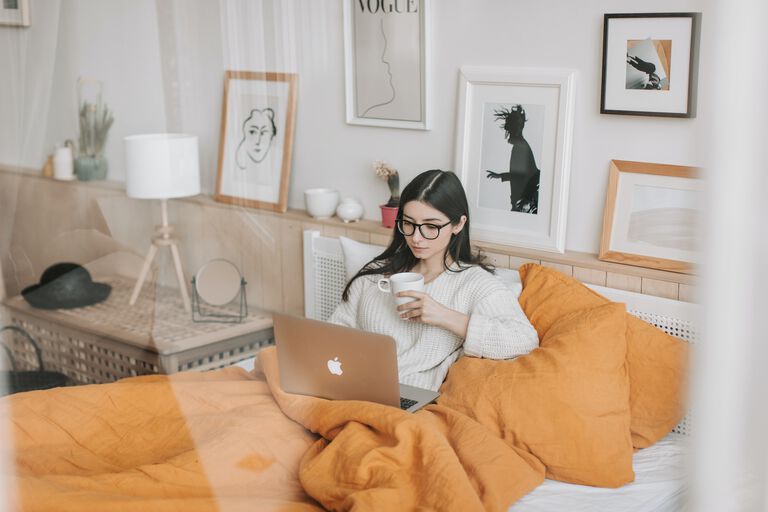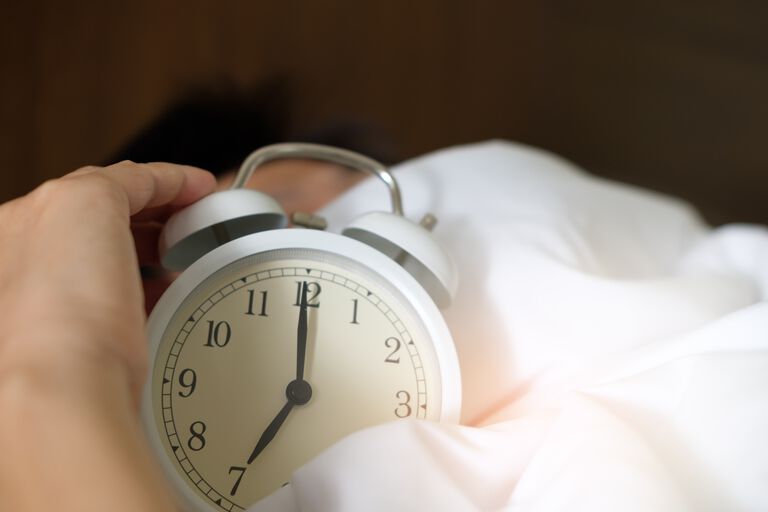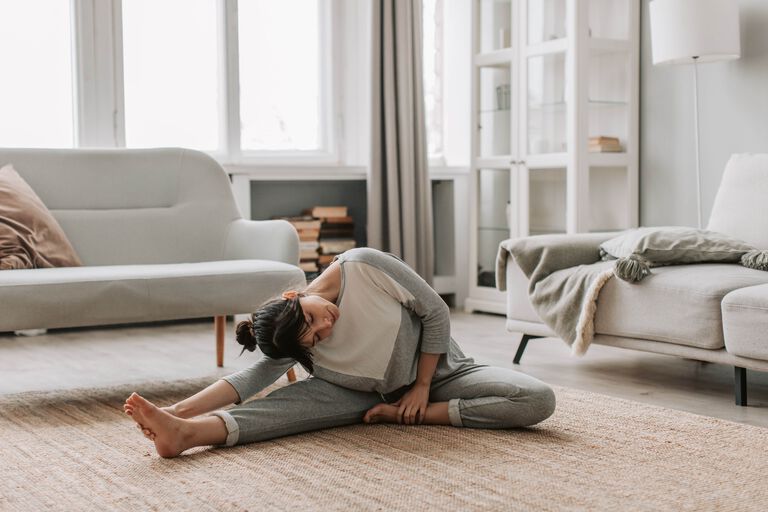Lockdown, Sleep And How To Start Waking Up Early Again

Coronavirus and the resultant lockdowns impacted every aspect of life, including sleep. This was positive for some, with working from home meaning more sleep and even forgetting how to get up early. Meanwhile, others found anxieties about the pandemic kept them awake at night and negatively affected their sleep quality.
As lockdown in the UK begins to ease, TEMPUR® takes a look back at how the nation slept throughout lockdown, examining sleep at key moments and offering guidance on how to wake up earlier again as we emerge.
Sleep During the First Lockdown
The first UK lockdown was announced on 23rd March 2020, with all non-essential shops closed and people only allowed outside to exercise once a day. Although this was a troubling time, the proportion of Brits attaining a healthy amount of sleep actually increased at this time.
According to YouGov, the number of people sleeping for eight hours surged following the announcement of the first lockdown, while those sleeping six hours or less decreased. There was even an increase in people sleeping for ten hours or more. It’s possible that this boost to sleep was the result of people no longer commuting to work and choosing to stay in bed longer in the morning.
How the UK Slept in Summer 2020
On the 10th May, lockdown restrictions in England began to ease, with people being allowed outside more than once a day and to spend time relaxing in public spaces again. Nonetheless, the news remained turbulent, with attention focused on government inaction and faults.
However, the sleep of the UK was not affected by these changes; people continued to spend more time resting than before lockdown and compared to previous years, with the proportion of people attaining a healthy seven to nine hours sleep remaining high.
People in the UK only began to sleep less with changes that encouraged spending more time outside and less on your mattress. Pubs reopened on the 4th July and that week saw a significant increase in the proportion of people sleeping for five hours. A similar spike occurred in August when the government launched ‘Eat Out to Help Out’, their scheme to encourage Brits to dine out and support the economy.
Sleep in the Winter Lockdowns
Winter brought with it an increase in coronavirus cases and new lockdowns in England to combat the spread. The first began on 31st October and lasted for four weeks, having little effect on the sleep of the nation.
However, sleep was disrupted in early December, shortly following the end of the second lockdown. While December did see the approval of multiple vaccines for the virus, coronavirus variants and increasing cases created concern about government plans for considerable relaxing of restrictions over the Christmas period.
On the 19th December the government announced tight lockdowns across south and south-east England, which prevented many from being with their loved ones over the Christmas period. The week leading up to this saw an increase in the proportion of people sleeping less than six hours per night and a decrease in the proportion sleeping for a healthy length of time, possibly due to concerns over the virus and anticipation of the government action.

Sleep in 2021
The majority of the UK was under tight restrictions again by the end of 2020 and this continued through the early months of 2021. Sleep levels steadied following the disruptions of December and much of the UK continued to spend more time in bed than pre-pandemic.
This stability lasted until April, when non-essential shops re-opened and bars could serve customers outside. The number of people sleeping nine hours fell slightly, while the proportion sleeping seven hours increased, so people appeared to be sleeping less, although still within a healthy range.
How to Start Waking Up Early Again
While the pandemic brought with it many undesirable effects, it did encourage people to attain a healthy amount of sleep, which they weren’t before. If you’re concerned the planned return to normality could impact your rest, use some of the following advice to protect your sleep quality:
- Adjust your wake-up time gradually, shifting it slightly earlier every day for a couple of weeks
- Sleep on a comfortable and high-quality mattress
- Exercise daily to use excess energy
- Sleep on a well-designed pillow, which properly supports your back and neck as you rest
- Try meditation to help soothe your mind if you have anxieties about lockdown easing
Sources
Feel it for yourself
Find a TEMPUR store or Stockist and try out our range of mattresses for yourself

Download our brochure
Want to know more about our story? Download our brochure to see more.

Visit a TEMPUR® store or talk to a sleep expert
Want to know more about TEMPUR®? Either visit us in store or arrange to speak to us today.
Get the latest news and offers
Sign up to receive news and offers about TEMPUR® products. Detailed information on the use and storage of data can be found in the Privacy Policy.


